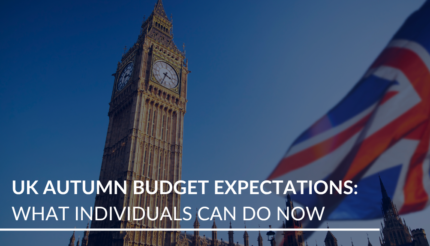This is for you if you want to learn about the principles of the identity iceberg and how we can use this model to really get to know ourselves and identify the areas of our life where we need to make changes if we want different results.
The results we get in our life are not just from the things we do but, crucially, from the stuff that’s going on in our head, our thoughts, the beliefs that have been programmed into us, our skills and the people we surround ourselves with.
What is the Identity Iceberg?
You may be familiar with the concept of the ID Iceberg. Imagine or draw an iceberg. It follows the 80/20 rule, the Pareto principle. 20% of the iceberg is above the water line, 80% is below the water line and the whole iceberg is surrounded by freezing air or frozen water. This iceberg is a metaphor that describes us.
Below the waterline is the 80% of us that no-one sees. This is the stuff that goes on in our head, mostly in our unconscious mind. It contains our beliefs, our skills, our values, our identity. If you’re gone ahead and drawn your iceberg, you might want to add the labels, skills, beliefs, values and identity onto the part that’s below the waterline.
What we do is the bit that people see, the ice above the water. This is made up of our decisions, our behaviour and our actions. Add those labels to the part of your iceberg that’s above the water.
But it’s the ice beneath the surface that has the biggest impact – after all, it’s the bit that sunk the Titanic!
Who we are is, simplistically, made up of our skills, our beliefs, our values, our identity and our environment. What we actually do – the actions we take – is dependent on these elements of who we are.
And what we DO will give us our results.
So, if we want to change our results, we will have to change what we do. But in order to change what we do, we have to change who we are, those aspects of us that sit below the waterline.
We might have to learn new skills, because we won’t do something if we don’t know how to. We may have to change our beliefs – for example if we believe we’re no good at something we won’t do it. We may have to change our values. For example if we believe salespeople are sleazy, pushy people, it’s unlikely we’ll be able to sell. And we may have to change our identity – who we believe we are.
What do you need to change in the lower part of your identity iceberg that will help you make better decisions, help you behave more like the person you want to become or ensure you take positive actions to get the results you really want? What beliefs do you need to change? What new skills do you need to learn?
It is absolutely possible to change our beliefs, our skills and our values, our identity. These aspects of us are engrained into us, programmed if you like. So it’s just a case of reprogramming ourselves. And you can do that simply by being more aware of your thoughts. Because we have a choice about how we think. When someone speaks to us, for example, we have a choice how we respond. No one makes us respond the way we do. How do you choose to respond?
It’s also a good idea to listen to the words you say about yourself. The words we say are a reflection of our thoughts. In particular the 2 words “I Am” are probably the most powerful words in the English language. How you describe yourself with those words is a result of your beliefs about yourself. But your beliefs are not necessarily true – they are just what you’ve been programmed to believe. So if you catch yourself saying something like “I am rubbish at … whatever.”, try rephrasing it to I AM brilliant at … whatever” or I AM learning to be brilliant at … whatever”. Does that feel better? Affirmations or I AM statements spoken out loud repeatedly (possibly in private if this sounds a bit strange at first) are a great way to reprogramme your beliefs about yourself. Draw up a list of I AM statements that describe the person you want to become and repeat them every day twice a day at least.
What about our environment?
The iceberg is surrounded by the environment. Our environment has a massive impact on us – our mood, how we think and feel, how we behave, the decisions we make and the actions we take.
If you’re stuck at home during this Coronavirus pandemic, trying to work, home school and get to the supermarket, you’ll know this more than ever right now. You might think that there’s not much you can do about your environment. But it’s not just your physical environment that counts.
Our environment is the part of our identity iceberg that many of us ignore with potentially disastrous results.
The impact of our environment on us is massive. Think back to the iceberg. We know from global warming studies that if the temperature of the water increases, the whole size and shape of the iceberg changes. So in our analogy, our environment does not just comprise our physical environment – where we live and where we work (and those two are currently more and more likely to be the same place right now during the Pandemic and so even more important to get right for us).
By making quite simple changes to our physical environment we can change how we feel about ourselves. For example, a bunch of flowers or some bright colour can make an immediate difference. Decluttering and having a tidy space is also very effective. Going outside to spend some time walking in nature is also a great way to change our environment and will lift your mood and your energy levels.
Our environment also includes the impact on us when we were very young (up to the age of 7) of our parents, carers, teachers, the people who programmed us by telling us things like how they loved us, or how unlovable we were, that we were great at art, or who ridiculed us for our painting of what we said was an elephant, et cetera. Our environment at that age had a long lasting, apparently indelible impact on our identity. Most people take this to their graves without questioning or working to undo any negative influences on their identity received during those tenderly informative years.
Who are you hanging out with?
Our environment also includes the people we hang out with – our family, friends, customers, suppliers. Research has shown that we become like the average of the five people we spend the most time with. Who we spend our time with may be the single most determining factor in the person we become and in our quality of life.
So spend time with positive successful achievers and inevitably their attitudes and successful habits will reflect on you. You’ll become more like them.
On the other hand, if most of the people you associate with are constantly complaining, making excuses or coming up with reasons why life is against them, the odds are you will be too. Unfortunately, there will be people who are trying to get ahead in life but keep getting pulled down by the people around them. This can be difficult when these people are your family! We must be strong and be sure to spend less time with people who don’t encourage and challenge us to become the best we can be.
Look for people who believe in you, admire you and can help you get where you want to go in life. Surround yourself with people who will create a positive environment for your sense of self.
What are you putting into your head?
Finally, your environment also includes the stuff you read or listen to (or don’t read or listen to) which is why personal development through learning is so important to our success. The massively influential and inspirational Jim Rohn taught that our level of success will rarely exceed and will usually parallel our level of personal development.
We need to be aware of what we allow in our heads. A great example of this is consuming negative, speculative news every day. My advice is: don’t do it!
Our outer world will always be a reflection of our inner environment. The trick is to take the time to be self-aware enough to realise what needs to change inside for our outer world to change.






I don’t think the title of your article matches the content lol. Just kidding, mainly because I had some doubts after reading the article. https://accounts.binance.com/es/register?ref=V3MG69RO
Thank you for your sharing. I am worried that I lack creative ideas. It is your article that makes me full of hope. Thank you. But, I have a question, can you help me? https://www.binance.com/ph/register?ref=FIHEGIZ8
Thanks for sharing. I read many of your blog posts, cool, your blog is very good.